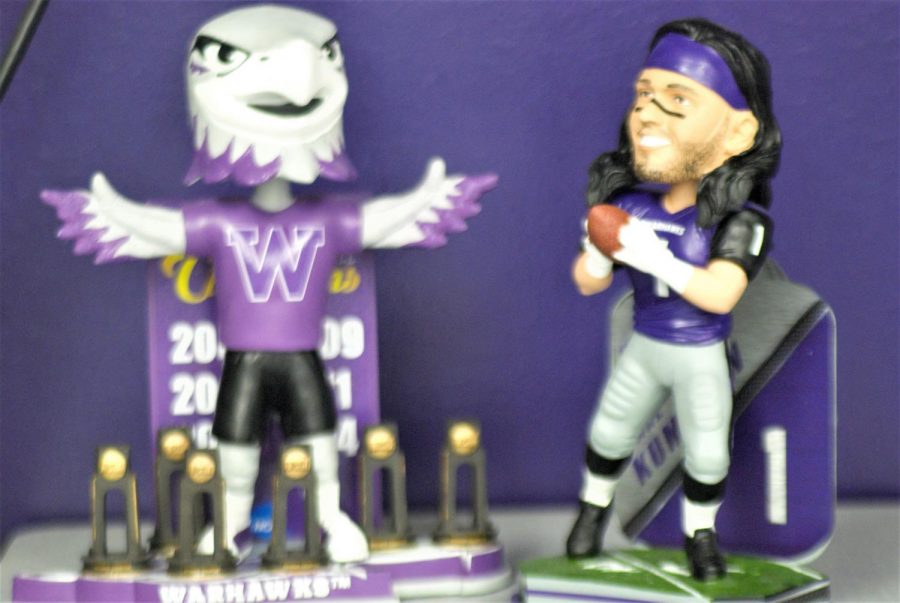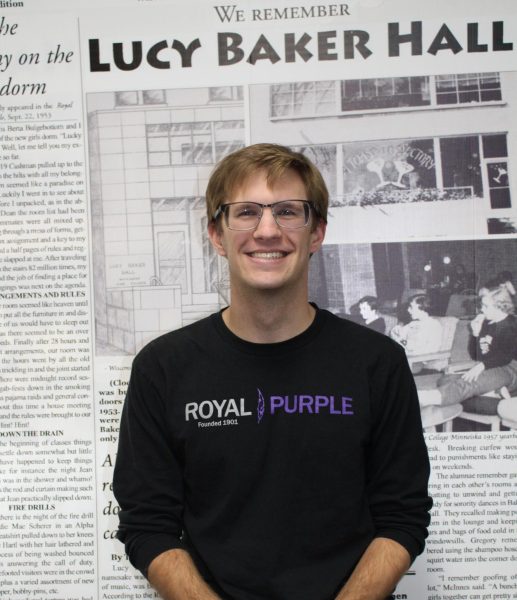Show me the money!
Student athletes can now profit off their success
October 31, 2021
On July 1, 2021 every single college athlete got a win with the new National Collegiate Athletics Association rules on name, image, and likeness going into effect. The change allows college athletes, in all divisions, to make money using their name, image, and likeness. This means the possibility of endorsements, sponsors, and all kinds of other ways for student athletes to create revenue for themselves.
“If you look at bigger institutions, in their book stores or shops they have all kinds of jerseys with different athletes names on them etc. That’s how this all came about because athletes were saying you’re using my name to gain revenue for the institution and this isn’t right,” said Senior Woman Administrator/Assistant Athletics Director for Compliance and Eligibility Keri Carollo.
The argument over whether or not college athletes should be able to benefit monetarily has been debated for many years. In 2009 a former UCLA basketball player, Ed O’Bannon, was used in an NCAA basketball video game without his permission. He took his argument to court and in the summer of 2014 the court ruled that the NCAA was in violation of antitrust laws by not allowing student athletes to profit off their likeness in video games and broadcasts.
“As a campus we have talked with our chancellors and we fully support it. I think there have been some questions that have come up, legitimacy of certain things, endeavours. And at our level there’s really not a lot of – I mean there are a lot of opportunities but you know we aren’t Alabama football or Madison football. They’re going to go to Zimbrick and potentially do something there. What we are doing right now is trying to educate our student athletes to make sure they know the rules and everything else,” said Director of Athletics Ryan Callahan.
Education has been the main focus during this first year under the new rule. Modes of education right now include presenting to teams on what student athletes can and cannot do, and going through a checklist and meeting with the university’s compliance officer to ensure everything is in check. Callahan mentioned perhaps expanding resources in the future to be conference wide.
“I think what would really be nice is if we had a conference collaboration,” said Callahan. “Maybe it’s a virtual hub where all athletes in the WIAC can go to ask questions and get support. If they want to pay a little more for an expert to help them brand and make an identity, they can do that.”
Callahan said that it is possible that in future years the university could provide more resources for athletes to get help in marketing and expanding their own brand. As of now, since there is no massive need for this and there does not seem to be money set aside for it; no new positions have been created to specifically work with NIL deals. His goal for the coming years is to provide an online system which student athletes can use for recommendations and help on how to create their own brand and monetize. He also suggested if NIL use by UWW athletes gets bigger there could be the possibility of having a marketing consulting firm come in for student athletes to have access to.
There are many rules that student athletes must be aware of and follow when pursuing the use of their name, image or likeness. The seven page UWW NIL Policy document states that the university’s logos and trademarks cannot be used in advertisements unless given approval by the University’s Office of Marketing and Communications. There are several rules which the student athletes must adhere to, if they fail to do so they risk punishment from the university. The policy states that “failure to follow these NIL guidelines may result in loss of privileges and other sanctions as appropriate, including, but not limited to, verbal or written reprimand, probation, loss of practice privileges, loss of competition privileges, suspension or dismissal from the program.”
“They can’t utilize a jersey. If they were going to advertise somewhere they couldn’t do that in their Warhawk football jersey,” said Callahan. “If they want to wear a UW-Whitewater shirt then they just have to go through UMC to make sure about the trademarking and everything else… Just make sure they understand what they can and cannot advertise, because there are trademarking laws within the university and making sure they are aware of those. If athletes want to do that that’s great. The other side is to make sure it is an appropriate business that they are working through.”
In addition to having to follow the many rules, student athletes are asked to not take on deals with companies which the university does not want involvement with. The NIL policy document mentions that UW-Whitewater has the right to restrict “categories of companies, brands or other types of contracts.”
“We don’t want our students generally on our campus representing alcohol, drugs,” said Carollo. “We want to withstand and uphold the integrity of our institution and what we believe in in having a strong moral compass.”
“We have a form to fill out and give to us to make sure they aren’t doing anything to lose eligibility or other legal aspects,” said Callahan. “The last thing I want to do is have one of our players advertise for a car dealership in a UW Whitewater shirt and have to ask, well did you get approval for that? Are you paying the licensing on that?”
Beyond all the rules that student athletes have to follow, their opportunities are entirely up to them. Companies and athletes can both reach out for deals. If desired, a student athlete could work on their own to create a brand of their own.
“You know with the internet age right now it’s very easy to download a creative cloud or something like that to manipulate your initials or something like that,” said Callahan. “Make your own clothing brand. That’s the beauty of Whitewater, the students are all go getters, motivated to try different things.”
The Director of Athletics also mentioned the great resources available on campus such as the marketing department. He said that student athletes are encouraged to use the great intellectual capital on campus when they have questions.
“We want our student athletes to know that we support them in this opportunity,” said Carollo. “They have our support, we aren’t going to try to take away something from them in which they could earn money or some kind of restitution of some sort.”
According to Carollo there has been one UW-Whitewater athlete who has made a deal and another is in the works.














